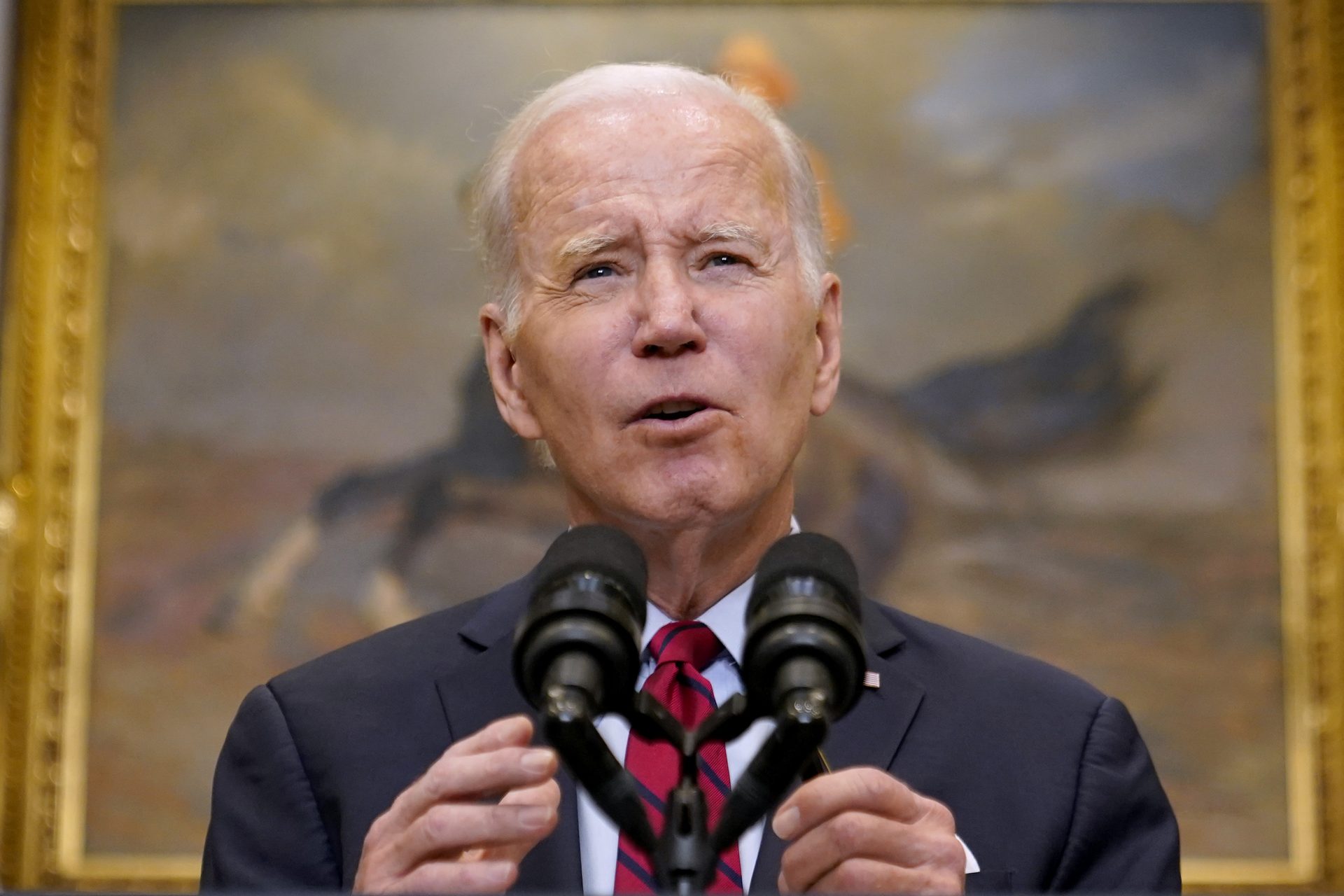EL PASO, Texas – Immigration attorney Héctor Quiroga, CEO of Quiroga Law Office, says it was entirely predictable that a Texas federal judge David Ezra would rule against the implementation of Texas Senate Bill 4.
The legislation, which Gov. Greg Abbott championed and signed into law in December 2023, would have gone into law on March 5. Abbott says the State of Texas will appeal the judge’s ruling.
“Texas will immediately appeal this decision, and we will not back down in our fight to protect our state—and our nation—from President Biden’s border crisis,” Abbott said. “The President of the United States has a constitutional duty to enforce federal laws protecting States, including laws already on the books that mandate the detention of illegal immigrants. Texas has the right to defend itself because of President Biden’s ongoing failure to fulfill his duty to protect our state from the invasion at our southern border. Even from the bench, this District Judge acknowledged that this case will ultimately be decided by the U.S. Supreme Court.”
A lawsuit to have SB 4 struck down was filed in December 2023 by the American Civil Liberties Union, the ACLU of Texas, and the Texas Civil Rights Project (TCRP) on behalf of El Paso County, American Gateways, and Las Americas Immigrant Advocacy Center. It was subsequently consolidated with a lawsuit by the Department of Justice.
In the ruling, the United States District Court for the Western District of Texas granted a motion for preliminary injunction to block Texas Senate Bill 4 from being enacted.
SB 4 would permit local and state law enforcement to arrest, detain, and remove people they suspect to have entered Texas from another country without federal authorization. Civil rights groups say the legislation is one of the most extreme anti-immigrant laws ever passed by any state legislature in the country.
“What the judge is trying to say with this ruling is that, at this moment, he is seeing problems with the application of the law, since immigration-related issues are handled by the federal government and not the state,” Quiroga said. “If it had ruled differently, it would have opened the door for other states to do the same.”
Quiroga said it is important to highlight that Texas is the second most populous state in the US, with more than 28.5 million inhabitants and that 40 percent of these are Hispanic.
Quiroga Law Office, PLLC, is an immigrant law firm for immigrants, created to help people to achieve the American Dream. It has offices in Spokane, Kennewick, Las Vegas and Wenatchee, in the USA, and Querétaro in Mexico.
TCRP argued in court that S.B. 4 violates the supremacy clause of the U.S. Constitution and is preempted by federal law, as Texas judges would be required to order a person’s deportation regardless of whether a person is eligible to seek asylum or other humanitarian protections under federal law.
TCRP warned that the law would separate families and directly lead to racial profiling, subjecting thousands of Black and Brown Texans to the state prison system, which is rife with civil rights abuses.
Aron Thorn, senior attorney for the Beyond Borders Program at TCRP, said: “We celebrate today’s win, blocking this extreme law from going into effect before it has the opportunity to harm Texas communities. This is a major step in showing the State of Texas and Governor Abbott that they do not have the power to enforce unconstitutional, state-run immigration policies. While this is only the first step in abolishing the law, people across the state can breathe a sigh of relief knowing they will not be needlessly arrested or deported by Texas under S.B. 4.”
Anand Balakrishnan, senior staff attorney at the ACLU’s Immigrants’ Rights Project, said: “The federal court’s decision confirms over a century of Supreme Court precedent, affirming that immigration enforcement is squarely within the federal government’s authority. S.B. 4 is a blatantly unconstitutional attempt to bypass federal law. We applaud the court’s decision, but we must ensure this harmful law is struck down altogether.”
Edna Yang, co-executive director of American Gateways, said: “This decision is a victory for all our communities as it stops a harmful, unconstitutional, and discriminatory state policy from taking effect and impacting the lives of millions of Texans. Local officials should not be federal immigration agents, and our state should not be creating its own laws that deny people their right to seek protection here in the U.S. While we are thankful for this court decision, we know that too many people fleeing persecution are being denied their legal rights to make their case and seek political asylum. The only way to fix our broken immigration system is through federal congressional action, not individual state action.”
Jennifer Babaie, director of advocacy and legal services with Las Americas Immigrant Advocacy Center, said: “With today’s decision, the court sent a clear message to Texas: SB 4 is unconstitutional and criminalizing Black, brown, indigenous, and immigrant communities will not be tolerated. This crucial decision allows us to continue to focus our efforts on building a safe, legal, humane immigration system not contingent on abuses like racial profiling and harassment. We must continue to be vigilant against Texas’ politics of fear and hatred. But today, immigrants and Texans of color get to pursue living lives of hope, opportunity, and family. It’s a win worth celebrating.”
David Donatti, senior staff attorney at the ACLU of Texas, said: “The court’s decision to block this anti-immigrant law from taking effect is an important win for Texas values, human rights, and the U.S. Constitution. Our current immigration system needs repair because it forces millions of Americans into the shadows and shuts the door on people in need of safety. S.B. 4 would only make things worse. Cruelty to migrants is not a policy solution.”
Iliana Holguin, El Paso County Commissioner Precinct 3, said: “El Paso County applauds the court’s clear confirmation today that immigration policies rest solely under federal jurisdiction, and the state of Texas’ interference with the U.S. Constitution will not be tolerated. A piecemeal approach from individual states on federal matters such as immigration enforcement would put an undue burden on local taxpayers, while opening the door to potential civil rights violations for border residents and immigrants alike.”
El Paso County Commissioner David Stout said SB 4 earned its injunction for being a poorly written law that was designed less for actual enforcement and more for political messaging.
“Migrant arrivals require local, state, and federal coordination to manage. But Texas’ Governor and those following him are more interested in the politics than the policy. SB 4 is an example; more than one person has observed this is less a prosecutable law than a political statement, destined to be thrown out,” Stout said.
“More broadly, we continue to struggle with the lies Gov. Abbott and others push about migrants. To the extent there is a migrant “crisis,” it’s largely manufactured by the actions of the Governor and those who follow his lead. Again, managing immigration is nothing Americans have not done before, and cannot do now. Mark my words: This may be polling well now because of the division sown by Republicans, who have basically nothing else to campaign on, but polls can be transient. The American people are ultimately welcoming. Eventually, we will get the immigration policy reform we need to create more legal pathways and more effectively manage the border, such as the Dignity Act, and those behind hateful politics like SB 4 will lose.”
The Dignidad (Dignity) Act was filed by U.S. Reps. Maria Elvira Salazar, R-Florida, and Veronica Escobar, D-Texas.
Texas State Rep. Victoria Neave Criado, chairwoman of the Mexican American Legislative Caucus, issued this statement about the federal court ruling on SB 4:
“The Mexican American Legislative Caucus applauds the federal court’s rejection of the unconstitutional S.B. 4 and Judge Ezra’s affirmation of the arguments highlighted by MALC Members and our coalition partners.
“This extremist legislation signifies a complete disregard of due process and equal protections for all Texans within our borders. S.B. 4 raises high-alert alarms of racial discrimination and Americans being questioned about their citizenship, hindering asylum-seeking rights for migrants, and straining diplomatic ties with our vital international trading partner, Mexico.
“S.B. 4 epitomizes Texas’ defiant move to upend 150 years of federal immigration law and seize control at the state level, creating chaos at our border during a presidential election year. As the entire Western Hemisphere is impacted by global migration, we must be building bridges and not walls. Make no mistake, we will continue to fight back against any attack on our mixed-status families and look forward to this bill being struck down in the courts.”
Harris County Judge Lina Hidalgo issued this statement about the federal court ruling on SB 4:
“I am in full support of this ruling. SB 4 is nothing more than a political stunt that dehumanizes immigrants and creates a culture of racial profiling and police mistrust in communities across Texas, especially within our Hispanic communities. Our immigration system’s challenges urgently need a solution and we need more efficient, fairer and clearer policies. But SB 4 is not that solution. Instead of using immigrants as political tools, let’s work toward bipartisan immigration policy that keeps us safe and targets bad actors like human smugglers, while allowing sufficient paths for legal immigration and a sustainable workforce.”
Tom Jawetz, senior fellow for immigration polity at the Center for American Progress, said of the federal court ruling:
“As the court explains in its careful and detailed opinion, SB 4 is patently unconstitutional under long standing Supreme Court precedent. Tellingly, Texas basically conceded this point, selling the law as an invitation for the Supreme Court to overturn these past decisions and as an exercise of state power that somehow supersedes federal law. It is important, too, that the court rejected Texas’s dangerous claim that it is being “invaded”—the very language used by the man who killed 23 people in El Paso five years ago in a racist mass shooting.”
Editor’s Note: The ACLU has posted a copy of the order granting a preliminary injunction against SB 4 on its website. Click here to read it.
The post Quiroga: It was entirely predictable that a Texas federal judge would rule against SB 4 appeared first on Rio Grande Guardian.
 (2).png)
 2 months ago
70
2 months ago
70









 English (US)
English (US)